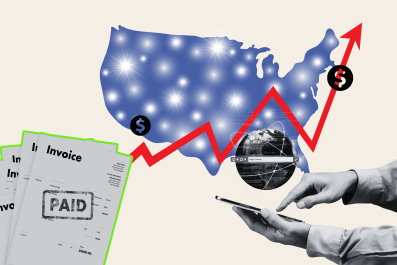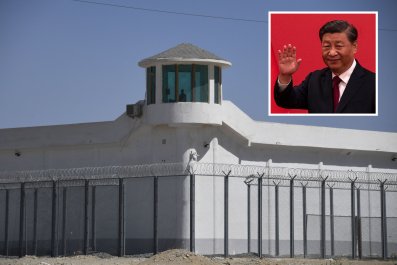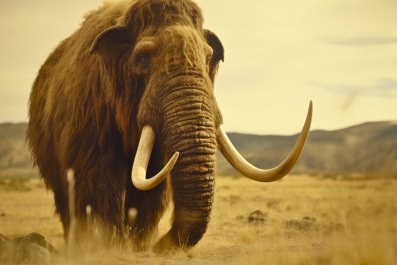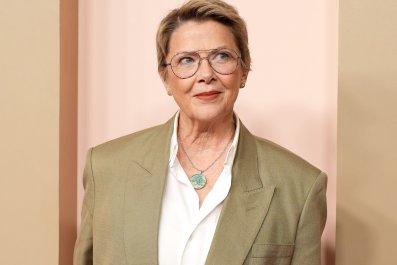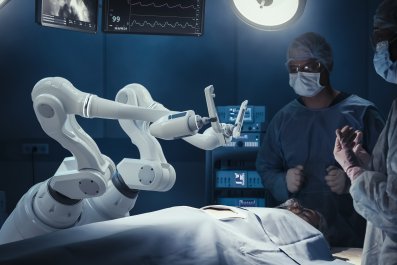Six months before his death in an Arctic penal colony, Russian dissident Alexei Navalny wrote of his hopes for his country, his love for his family and for literature, and the maxim that shaped his thinking. "I believe that Russia will be happy and free," he said. "And I do not believe in death."
He shared his thoughts in response to a 13-item questionnaire sent to political prisoners across Russia by Boris Akunin, a pseudonym used by the country's most famous and long-exiled writer. Akunin published the compiled responses in an e-book on his website in October. This exclusive excerpt is from the English translation edited by Joanne Turnbull with Nikolai Formozov, which will be published in March.
Navalny's death was officially confirmed Saturday morning. His spokeswoman, Kira Yarmysh, posted on X that the dissident's body was transferred from a penal colony in the Arctic to a nearby town, and demanded that his body be released to his family.
Here are Navalny's responses:
Who are you? From the prison authorities, I constantly hear this disgruntled phrase: "Hmm. You seem to be in a good mood today..." So I guess it's like this: I am a political prisoner who very much misses his family, work and colleagues, but who keeps in good spirits. I am also, of course, a reader. I spend most of my day with a book in my hands.
What do you believe in? In God and science. I believe that we live in a non-deterministic universe and have free will. I believe that we are not alone in this universe. I believe that our deeds and actions will be evaluated. I believe in true love. I believe that Russia will be happy and free. And I do not believe in death.
What do you rely on to make the most important decisions—reason or a gut feeling? There's no contradiction here; it's a false alternative. Evolution has designed us so that we don't have to think long and hard when we see a snake in our bed. Nor will we make instant decisions about how to build a house that snakes can't slither into.
There's a marvelous book about this called Thinking, Fast and Slow by Nobel laureate Daniel Kahneman. I highly recommend it.

What is the main thing in life? To be useful to society and to remain a good person.
What brings you the most joy? Simple family moments. Like going somewhere together in the car. One of us starts goofing around and singing, and the rest join in. And we can't stop until we've sung a bunch of songs. And the love and happiness overflow.
What most saddens you? The unwillingness of many people to think, their incomprehension of basic cause-and-effect relationships. Every time someone says to me something like: "Corruption doesn't affect my life" or "the people in power have done all their stealing, but if new people come to power, the stealing will start all over again."
I think: How is it that hundreds of millions of years of evolution have given this person the most amazing brain—and they don't use it?
What brings the greatest evil to man and mankind? All it takes for evil to triumph is the inaction of good people. A phrase attributed to many, though no one knows exactly who said it (I checked). It is amazingly accurate. The hypocrisy of neutrality, "apoliticism", and recusal, concealing laziness, cowardice and meanness, is the principal reason why a bunch of well-organized villains have ruled over millions throughout human history.
And the greatest benefit? Engaging in the battle of good vs. neutral.
What art form has the strongest effect on you? I love literature and consider that I know something about it. I like movies, music and architecture, but I don't know much about them. As for the rest of the arts, I will diplomatically say, "I treat them with respect."
Literature has the strongest effect of any art form. After all, it works through your own imagination. What could be stronger than that?
Do you have a favorite maxim? I don't just have a favorite maxim. I have a favorite maxim that contains the word "maxim: "Act in such a way that the maxim of your action may become a rule of universal behavior." This is one of Kant's formulations of the moral law.
It's very similar to the famous "golden rule" in the Bible ("Do unto others as you would have them do unto you"). The biblical version is more merciful; the Kantian version is, I think, more responsible, and I choose it.
Following any of these rules is very difficult, but it's something one should strive for.
Of the books you've read, which is most important to you? The Adventures of Huckleberry Finn. When I read it—I was about 10 or 11—I realized that books could be not only boring and useful, but also impossible to put down and could make you laugh on every page. So I started reading. I always feel very sorry for people who don't read books. They must never have had the luck in childhood of having the right book fall into their hands.
Do you have a role model? There were and are so many good people—brave, great, kind, and intelligent—that to choose just one person would be to rob yourself.
What is Russia to you today? A place where I understand everyone and feel at home. A country where my language is spoken and my people live.
I'm able to separate the country from the government, so in these dramatic times I love Russia no less than I always have.



